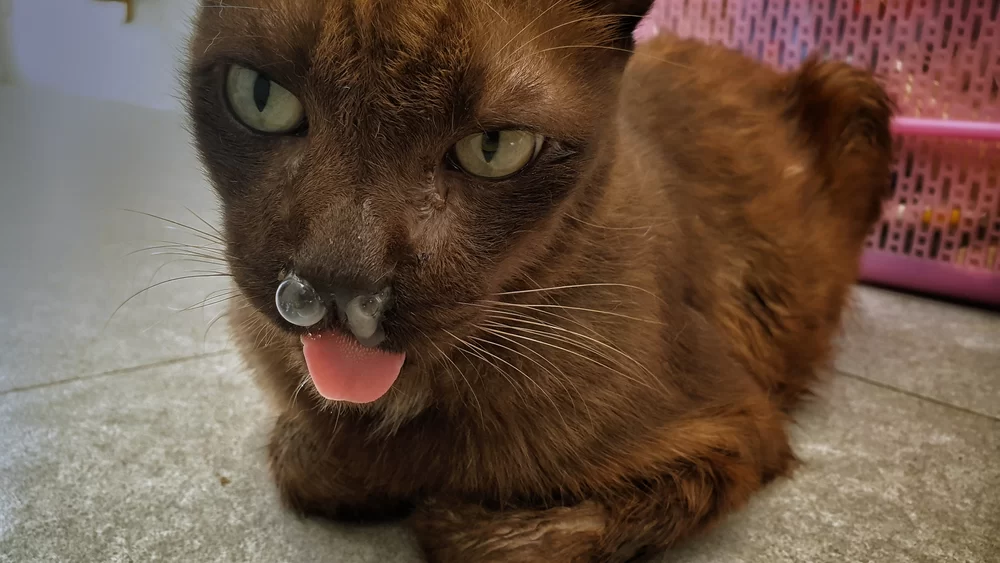Signs Your Cat Might Have a Respiratory Infection: Symptoms and Treatment
- 1. Understanding Respiratory Infections in Cats
- 2. Common Symptoms of a Respiratory Infection in Cats
- 3. Diagnosing Respiratory Infections in Cats
- 4. Treatment Options for Cat Respiratory Infections
- 5. Preventing Respiratory Infections in Cats
- 6. When to Seek Veterinary Help for Your Cat’s Respiratory Infection
Respiratory infections in cats are common and can be caused by viruses, bacteria, or fungi. These infections often affect the upper respiratory tract, causing symptoms similar to the flu in humans. A respiratory infection can range from mild to severe, depending on the underlying cause and the cat’s overall health. Recognizing the signs early can help in treating the infection before it worsens.
Cats, especially those in multi-cat households, shelters, or those with weakened immune systems, are more susceptible to respiratory infections. Keeping your cat’s immune system strong and monitoring any symptoms can prevent the infection from becoming a serious health concern.
The symptoms of a respiratory infection in cats can vary but often include:
- Coughing and Sneezing: Cats with respiratory infections often exhibit persistent coughing or sneezing. These symptoms are commonly seen with both viral and bacterial infections.
- Runny Nose and Watery Eyes: A runny nose is one of the most noticeable signs of a respiratory infection in cats. It may also be accompanied by watery or swollen eyes.
- Loss of Appetite: A cat suffering from respiratory issues may lose its appetite due to nasal congestion or difficulty breathing.
- Lethargy: Cats with respiratory infections may appear more tired than usual and may sleep excessively as their body tries to fight off the infection.
- Difficulty Breathing: Severe respiratory infections can lead to labored or rapid breathing, often a sign that the infection has spread or worsened.
If your cat exhibits any of these symptoms, it may be an indication of a respiratory infection. Early detection and treatment are key to ensuring your cat’s health and comfort.
If you notice any symptoms of a respiratory infection, it’s important to take your cat to the veterinarian for a proper diagnosis. The vet will likely perform a physical examination and may recommend additional tests such as:
- Blood Tests: To assess the cat’s overall health and check for signs of infection or inflammation.
- Viral or Bacterial Cultures: To identify the specific pathogen causing the infection.
- X-rays: To check for lung involvement or pneumonia, especially if the infection has progressed.
Accurate diagnosis is crucial for selecting the right treatment and preventing complications.
Treatment for respiratory infections in cats depends on the cause of the infection and the severity of the symptoms. Some common treatment options include:
- Antibiotics: If the infection is caused by bacteria, the vet may prescribe antibiotics to fight off the infection.
- Antiviral Medications: In cases of viral infections like feline herpesvirus, antiviral medications may be used to reduce the severity of symptoms.
- Fluid Therapy: Dehydration can be a concern with respiratory infections, so providing fluids through intravenous or subcutaneous therapy may be necessary.
- Supportive Care: This may include humidifiers, nasal decongestants, and gentle cleaning of the cat’s eyes or nose to ease breathing and comfort.
In more severe cases, hospitalization may be required to provide oxygen therapy or intensive care. Always follow the veterinarian’s advice for the best treatment plan for your cat’s specific condition.
While it may not be possible to completely prevent respiratory infections in cats, there are several steps you can take to reduce the risk:
- Vaccination: Make sure your cat is up-to-date on vaccinations, particularly for feline herpesvirus and calicivirus, which are common causes of respiratory infections.
- Proper Hygiene: Keep your cat’s environment clean, especially in multi-cat households, to reduce the spread of infectious agents.
- Stress Management: Minimize stress in your cat’s life, as stress can weaken their immune system and make them more vulnerable to infections.
By maintaining a clean, low-stress environment and ensuring your cat’s vaccinations are up to date, you can help protect them from respiratory infections.
If your cat’s symptoms persist or worsen, it’s crucial to seek veterinary help. Early treatment can help avoid serious complications like pneumonia or chronic respiratory issues. If your cat shows signs of severe breathing difficulty, lethargy, or a lack of appetite, it’s important to consult your vet immediately.
For expert care and advice, visit Hidden Brook Veterinary and schedule a consultation with our experienced veterinarians.










